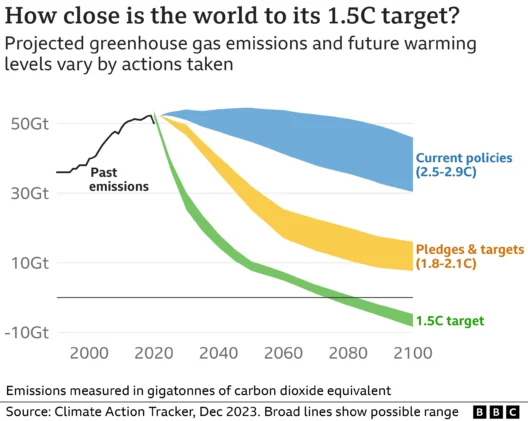In an era deeply marred by environmental degradation and the escalating threats posed by climate change, industries have emerged as significant actors in the quest for sustainable energy conservation. As large-scale consumers of energy, they possess both the obligation and the opportunity to embrace innovative practices that not only mitigate their environmental footprint but also enhance operational efficiency. This exploration of energy conservation in industry delineates sustainable practices essential for fostering a greener future.
At the outset, it is crucial to acknowledge the multifaceted nature of energy consumption in industrial settings. Manufacturing processes, material handling, and facility maintenance account for substantial energy expenditures. A common observation among environmental advocates is the substantial waste generated through inefficiencies in these areas. However, the deeper reasons for the allure of energy conservation stem from the potential for economic savings, regulatory compliance, and enhanced public image, fostering a holistic approach towards sustainability.
The first approach to achieving energy conservation involves the meticulous analysis of energy usage patterns. Conducting an energy audit serves as a foundational step. This involves systematically assessing existing consumption data, identifying peak usage times, and recognizing areas of wastage. Through sophisticated energy monitoring technologies, industries can gather real-time data, which serves not only to unearth inefficiencies but also to inform strategic decisions regarding energy management.
Another pivotal practice is the implementation of energy-efficient technologies. Upgrading machinery and equipment to more modern, energy-efficient models can yield significant benefits. For instance, replacing traditional incandescent lighting with LED systems dramatically reduces electricity consumption. Moreover, integrating variable frequency drives (VFDs) in motor applications allows for precise control of speeds and loads, thereby optimizing energy use. Such interventions are not merely cost-saving measures; they represent a conscientious stride towards sustainability.
In addition to equipment upgrades, the adoption of renewable energy sources forms an integral part of advancing energy conservation. Industries stand to gain from harnessing solar, wind, biomass, or hydroelectric energy. Strategic investments in renewable energy infrastructure not only diminish reliance on fossil fuels but also serve to insulate industry operations from the volatile nature of energy markets. The prospect of on-site generation, such as solar panels installed on facility rooftops, symbolizes a commitment to sustainable practices and can enhance a company’s appeal to environmentally conscious consumers.
Moreover, fostering a culture of energy conservation within the workforce amplifies the impact of implemented practices. Staff education and training are indispensable in cultivating awareness and encouraging proactive participation in energy-saving measures. Programs that incentivize employees to engage in sustainable practices create a sense of ownership over the efficiency initiatives undertaken by the organization. For example, introducing energy-saving competitions or recognition programs can heighten motivation among the workforce, ultimately leading to a more energy-conscious corporate culture.
Energy management systems (EnMS) further consolidate these efforts. By establishing a framework for continual improvement, EnMS facilitates the systematic monitoring and enhancement of energy performance. These systems allow industries to set measurable energy objectives and track progress against these goals. The iterative nature of EnMS encourages adaptability, ensuring organizations can respond agilely to shifting technological landscapes and regulatory requirements.
Furthermore, conducting regular maintenance and upgrading insulation materials in facilities is paramount. Poorly insulated buildings contribute to unnecessary heating and cooling costs, thereby inflating energy consumption. Implementing rigorous maintenance schedules, coupled with employing advanced building management systems, enables industries to sustain optimal operating conditions and extend the lifespan of their assets. Even seemingly minor adjustments, such as sealing leaks in ducts or installing programmable thermostats, cumulatively produce substantial energy savings.
Collaboration and partnerships also play a critical role in fostering energy conservation within the industrial sector. Engaging with other businesses, governmental bodies, and non-profit organizations can provide access to valuable resources, funding opportunities, and shared knowledge. Collaborative initiatives can enhance the diffusion of innovative technologies and sustainable practices across sectors, creating a broader impact on energy conservation efforts.
Moreover, industries must navigate the complexities of regulatory landscapes. Governments worldwide are increasingly enacting policies aimed at protecting the environment, often mandating stricter energy efficiency standards. Staying ahead of compliance requirements not only mitigates legal risks but also positions a company as a leader in corporate social responsibility. Proactive engagement with regulatory frameworks can facilitate access to incentives and grants, further supporting the transition towards sustainable energy practices.
In conclusion, the drive towards energy conservation in industry is an imperative that intertwines ethical responsibility with practical benefits. Through comprehensive energy audits, the adoption of efficient technologies, and the cultivation of a sustainable corporate culture, industries can achieve significant progress in reducing their energy consumption. The integration of renewable energy sources and the establishment of energy management systems further solidify this commitment. Ultimately, as industries align their operational strategies with sustainable practices, they not only contribute to a greener future but also leverage economic benefits that enhance their competitive edge. The pursuit of sustainability transcends mere compliance; it is an imperative for survival and growth in a rapidly changing world.








